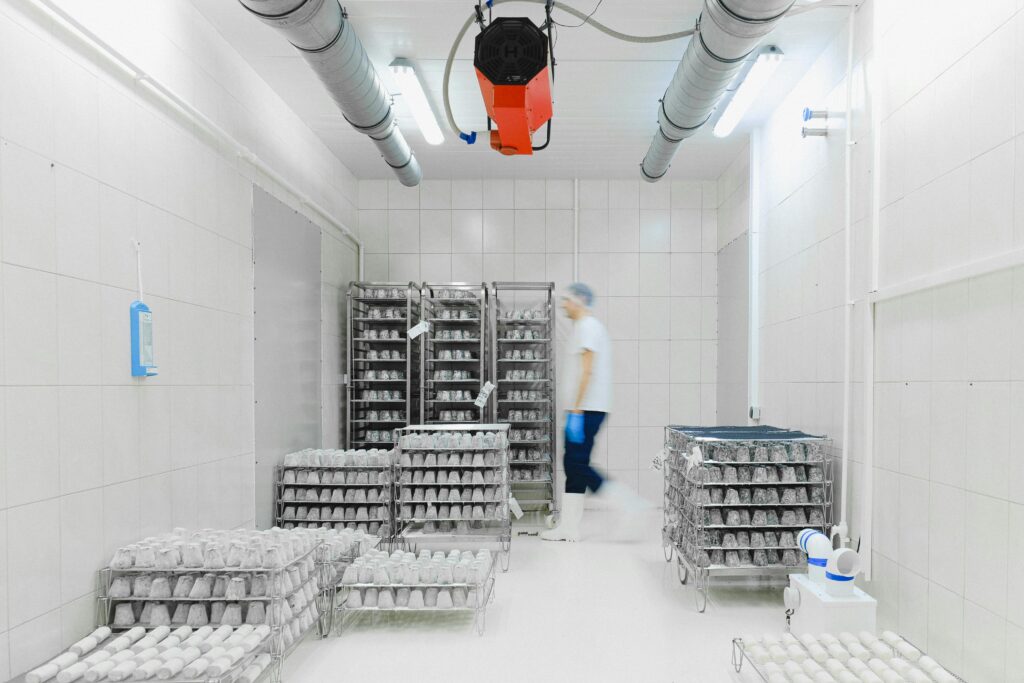
Have you ever wondered how your favorite ice cream stays frozen until you get home? Or that all-important vaccine that stays effective until it’s injected? The answer lies in something called Cold Chain Logistics . It’s not just any cooler, but a complex system that ensures temperature-sensitive products remain in optimal conditions from the beginning to the end of their journey.
What is Cold Chain Logistics?
Imagine a “chain” that can’t be broken, and each link must always be cold. That’s Cold Chain Logistics. It is a series of processes and technologies used to maintain a certain temperature range on temperature-sensitive products. These products can include frozen foods, dairy products, fresh fruits and vegetables, medicines, vaccines, and certain chemicals.
The ultimate goal is to maintain product quality, safety, and effectiveness. The slightest deviation in temperature can be fatal: ice cream melts, vegetables spoil, medicine becomes ineffective, or even vaccines spoil. So, this is no joke!
Kenapa Cold Chain Logistics Penting Banget?
The importance of cold chain logistics is felt in various sectors:
- Food and Beverage Industry: This is the most obvious one. Imagine frozen meat, fish, dairy products, or exotic fruits that have to travel long distances. Without a solid cold chain, these products would quickly spoil, lose nutrients, or even be dangerous to consume. Ice cream that melts halfway through is a small example of cold chain failure.
- Pharmaceutical and Healthcare Industry: Well, this is the most critical sector. Vaccines, insulin, blood serum, and many other medicines are highly sensitive to temperature. Damage from improper temperatures can mean human lives. The cold chain ensures that these medicines remain stable and potent until they reach the patient. You must remember how important the cold chain was during the distribution of the COVID-19 vaccine back then, right?
- Chemical Industry: Certain chemicals also require controlled temperatures to maintain their stability and safety, especially those used in research or production.
- Floriculture (Flower) Industry: Cut flowers need to be kept fresh and beautiful when they arrive at their destination.
Key Components in Cold Chain Logistics
To ensure this “cold chain” doesn’t break, there are several important components that work together:
- Cold Storage: This is a specialized storage facility equipped with a state-of-the-art cooling system to maintain a consistent temperature. There are chillers for above-freezing temperatures and freezers for below-freezing temperatures.
- Refrigerated Transport: This includes reefer trucks, refrigerated ships, or refrigerated cargo planes. They are designed to maintain a stable temperature during travel, no matter the weather conditions outside.
- Specialty Packaging Equipment: From insulated containers and gel coolers (ice packs) to dry ice, all are designed to maintain product temperature for a specific amount of time while in transit or handling.
- Temperature Monitoring System: Modern technology enables real-time temperature monitoring using sensors and data loggers. If there is a temperature deviation, an alarm will sound so that corrective action can be taken immediately. This is critical for accountability and quality assurance.
- Standard Operating Procedures (SOPs) and Training: Human resources play an important role. Everyone involved, from warehouse operators to truck drivers, must be trained in handling temperature-sensitive products and understand the importance of maintaining the cold chain.
Challenges in Cold Chain Logistics
Although vital, cold chain logistics also has its challenges:
- High Cost: Specialized equipment, energy for cooling, and strict temperature monitoring require a large investment.
- Complexity: Involves many parties and different control points, so coordination must be very precise.
- Risk of Equipment Failure: Damage to the refrigeration unit can be fatal to the product.
- Strict Regulations: Especially in the pharmaceutical sector, there are many rules and standards to adhere to.
Considering how complex and crucial this field is, it’s no wonder that professions related to logistics, especially those that specialize in cold chain, are highly sought after. An in-depth education in supply chain systems and operations management, such as what can be obtained in S1 Logistics Engineering, can be a very strong provision for a career in this growing industry.
Tags : Teknik Logistik | S1 Teknik Logistik | S1 Teknik Logistik Telkom University | Telkom University